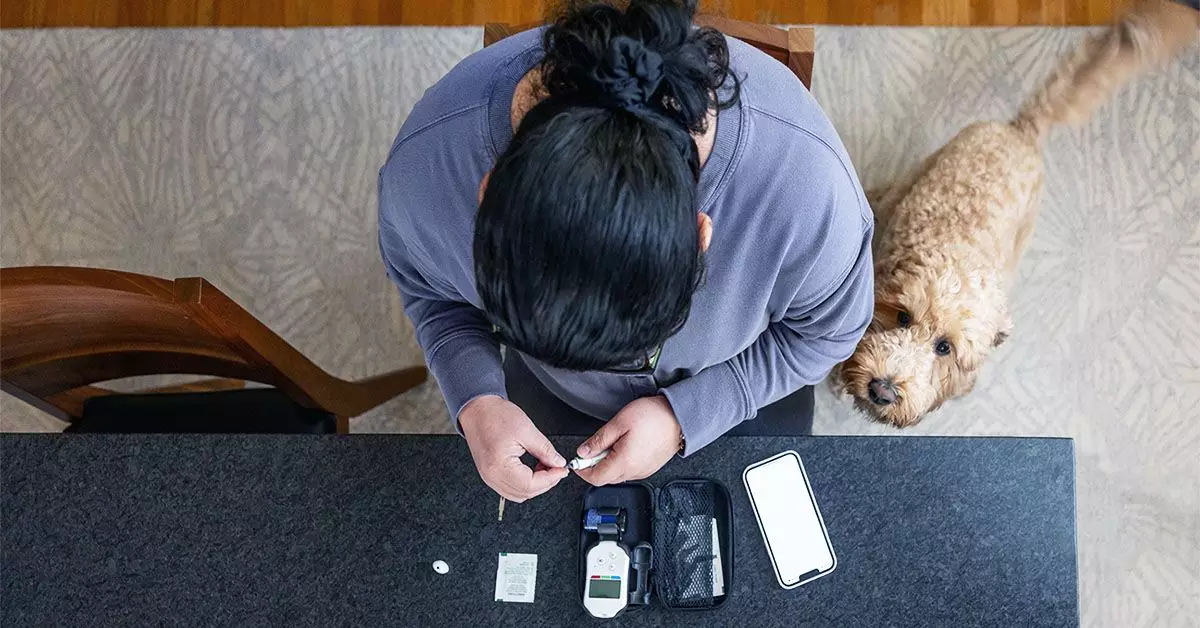Undergoing chemotherapy is a daunting journey that can greatly impact a person’s overall health, including their blood sugar levels. For individuals with diabetes, this circumstance demands heightened attention and careful planning. It is crucial to understand how chemotherapy affects insulin sensitivity and blood sugar management; this article outlines actionable strategies that can help patients navigate these challenges effectively.
The Diabetes-Chemotherapy Connection
Chemotherapy, a common treatment for cancer, often brings forth a series of physiological changes, including the potential alteration of blood sugar levels. Both individuals with pre-existing diabetes and those without may experience increased blood glucose during treatment, sometimes resulting in hyperglycemia. It is essential to recognize that the stress of illness, potential changes in diet, and the medications involved can all contribute to heightened blood sugar levels. One major concern is the potential development of insulin resistance, wherein the body’s cells fail to respond effectively to insulin, further complicating the blood sugar management process.
Adding another layer to this complexity, steroids are frequently prescribed to alleviate some chemotherapy side effects. While helpful in managing inflammation and nausea, these steroids can also significantly elevate blood sugar levels. Therefore, cancer patients, particularly those with diabetes, must engage actively with their healthcare team to establish a manageable approach throughout their treatment.
Identifying Effective Management Strategies
For managing blood sugar during chemotherapy, a personalized approach is vital. Patients may need to adjust their insulin dosages or even start insulin therapy if they were previously managing their diabetes through diet or oral medications alone. Regular discussions with healthcare professionals can ensure that individuals receive tailored plans that address their unique needs.
Additionally, adhering to consistent meal schedules plays a critical role. Eating smaller, more frequent meals can sometimes mitigate hunger dulled by nausea, which is a common side effect of chemotherapy. Typically, it’s recommended to eat five to six smaller meals throughout the day instead of three large ones. Incorporating easily digestible foods while steering clear of strong-smelling, greasy, or spicy options might help those battling nausea.
Importance of Hydration and Physical Activity
Staying hydrated is another crucial aspect of managing blood sugar levels during chemotherapy. Water, being calorie-free and carbohydrate-free, does not impact blood sugar levels but is essential for maintaining overall health. Patients are encouraged to drink water throughout the day, particularly in hot weather or during periods of fatigue. Infusing water with fresh fruits might make hydration more appealing and easier to incorporate into a daily routine.
Physical activity also bears significance in blood sugar management. Even though chemotherapy may cause fatigue, implementing light exercise can enhance insulin sensitivity and assist cells in utilizing glucose efficiently. The Centers for Disease Control and Prevention recommends aiming for 150 minutes of moderate exercise per week. However, patients can break this down into manageable segments, such as ten minutes of walking several times a day, depending on their capabilities.
It is vital for those undergoing chemotherapy to communicate their activity limitations with their healthcare providers. Personalized exercise plans can help maintain physical endurance while keeping blood sugar levels in check.
Frequent blood sugar monitoring is a cornerstone of effective diabetes management during chemotherapy. Patients should establish a clear routine for checking their blood sugar—ideally before meals and before bedtime—and keep track of any unusual patterns. If patients notice spikes or dips in their blood sugar levels unexpectedly, discussing these observations with their doctor can inform necessary adjustments to their treatment plan.
Additionally, a coordinated effort with a registered dietitian who specializes in oncology can further facilitate a healthier lifestyle. Dietitians can provide tailored advice for balancing carbohydrates, making dietary shifts due to taste changes caused by chemotherapy, and sustaining nutritional intake through the duration of treatment.
While managing blood sugar effectively is crucial, recognizing when to reach out for medical assistance is equally essential. Signs of infection or extreme fluctuations in blood sugar levels can indicate complications that require prompt attention. Symptoms like unusual tiredness, numbness, tingling in extremities, or fever and chills should always be evaluated by a healthcare professional to ensure appropriate action is taken.
While chemotherapy poses significant hurdles for blood sugar management, understanding and following tailored strategies can lead to better outcomes. Increased awareness of blood sugar challenges and collaborating closely with healthcare providers can empower individuals to manage their health proactively during this critical time. Addressing diabetes management during cancer treatment is not just a matter of maintaining numbers; it is about enhancing one’s quality of life amidst the complexities of therapy.


Leave a Reply